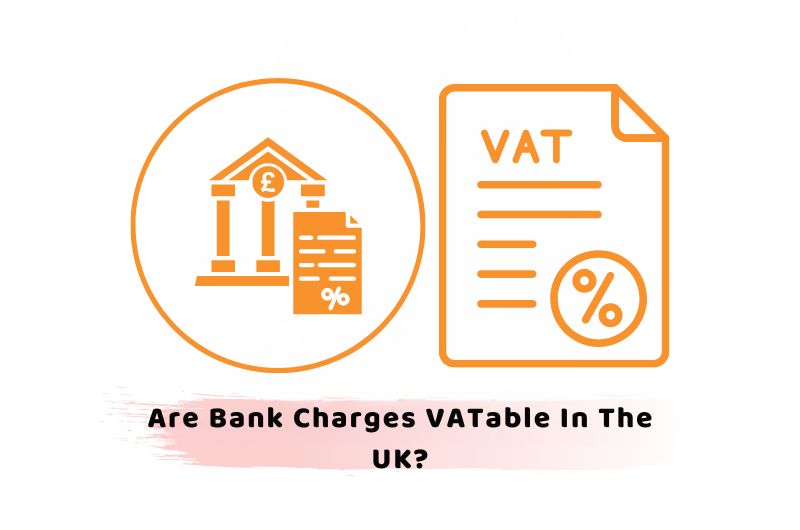
Are Bank Charges VATable?
When running a business or managing personal finances, it’s common to come across various bank charges, whether for overdrafts, transaction fees, or account maintenance. A frequent question that arises is: Are bank charges VATable? Understanding the rules regarding Value Added Tax (VAT) on bank charges and financial services is crucial for businesses to manage their VAT obligations and avoid complications with HMRC.
Let us break down the complexities of VAT on financial services, with a focus on bank charges, and explain how CANGAF Accountants can assist in navigating these tax regulations.
Understanding VAT on Financial Services
In the UK, the VAT treatment of financial services is a bit unique compared to other goods and services. Financial services often fall under the category of exempt supplies, meaning that no VAT is charged on these services. This applies to many banking services, including certain types of bank charges.
What Does “Exempt from VAT” Mean?
When a service is exempt from VAT, it means that the provider does not charge VAT to the customer, and they cannot reclaim VAT on the costs associated with providing that service. For businesses offering VAT-exempt services, this can have implications on the amount of VAT they can reclaim on their inputs (costs related to running the business).
Common Financial Services Exempt from VAT
Banking and financial services that are generally exempt from VAT in the UK include:
- Interest on loans or overdrafts
- Mortgage arrangement fees
- Currency exchange services
- Transfer fees
- Bank account maintenance fees
However, the specific VAT treatment can vary depending on the type of service provided, the nature of the transaction, and how the bank operates.
Bank Charges: When Are They VATable?
While many bank services are VAT-exempt, not all charges are free from VAT. Understanding the types of charges that may attract VAT is essential for businesses and individuals.
Charges That Are Generally Exempt from VAT:
- Standard bank account fees: Regular account maintenance fees are often VAT-exempt.
- Interest charges: Overdraft or loan interest charges are usually exempt from VAT.
- Money transfers: Bank charges for transferring money, including international transfers, are typically VAT-exempt.
Charges That Could Attract VAT:
In some specific cases, charges levied by banks for services that are administrative or not directly related to financial transactions might be subject to VAT. For example:

- Administrative services: Fees for special administrative tasks that a bank performs, such as certain types of transaction processing or issuing duplicate documents, might incur VAT.
- Consultancy services: If a bank provides consultancy or advice services, these may be VATable, depending on the nature of the service provided.
Are Penalty Charges VATable?
Penalty fees, such as those for going overdrawn or bouncing a cheque, are often exempt from VAT, as they are seen as compensation for breach of contract rather than as a supply of goods or services. However, it’s always best to check the specific terms and conditions attached to the charge to be certain.
How CANGAF Accountants Can Help
Navigating the VAT rules for bank charges and financial services can be complex, especially for businesses that deal with large amounts of transactions and fees. CANGAF Accountants specializes in providing clear, actionable advice to ensure that you stay compliant with HMRC regulations. Here’s how we can assist:
- VAT Analysis: We will review your bank charges to determine which are exempt and which are VATable, ensuring your VAT returns are accurate and compliant.
- VAT Planning: We help businesses optimize their VAT position, so they can claim back VAT on appropriate expenses and manage VAT-exempt services effectively.
- HMRC Compliance: We keep you informed of any changes in VAT regulations related to financial services, reducing the risk of costly errors or penalties.
Why Understanding VAT on Financial Services Matters
For businesses, especially those that deal with a significant number of bank fees, getting VAT treatment right is crucial. Misunderstanding whether certain charges are VATable can lead to errors in VAT reporting, resulting in potential penalties from HMRC.
Key Considerations for Businesses:
- How many years can HMRC go back for self-assessment?
- How does HMRC know I have rental income?
- What do you do if you are new to completing self-assessment tax returns?
- Do HMRC check self-assessment returns?
- Making Tax Digital For Income Tax
- Input VAT Reclaim: If your business deals with a mix of taxable and exempt supplies, you may only be able to reclaim VAT on a portion of your input costs. This can be particularly tricky when it comes to VAT-exempt financial services.
- Accurate VAT Returns: Properly distinguishing VATable and exempt charges ensures that your VAT returns are accurate and that you’re not over-claiming or under-reporting VAT to HMRC.
- VAT Registration: If you’re not VAT-registered but offer VATable financial services, you may need to monitor your turnover to ensure you register once you meet the threshold.
Conclusion: Do You Pay VAT on Bank Charges?
In most cases, bank charges for standard financial services are exempt from VAT, meaning you don’t need to worry about VAT being added to those fees. However, certain administrative or consultancy services provided by your bank may attract VAT, and understanding the distinction is important for ensuring compliance with HMRC.
Whether you’re unsure about how VAT applies to your business’s bank charges or need expert advice on how to manage VAT on financial services, CANGAF Accountants is here to help. We offer specialized VAT advice and tax planning services to help businesses and individuals navigate the complex world of VAT and stay on the right side of the law.
CANGAF Accountants
235 Tonge Moor Road, Bolton BL2 2HR
Email: info@cangafltd.com
Phone: 01204 859315


